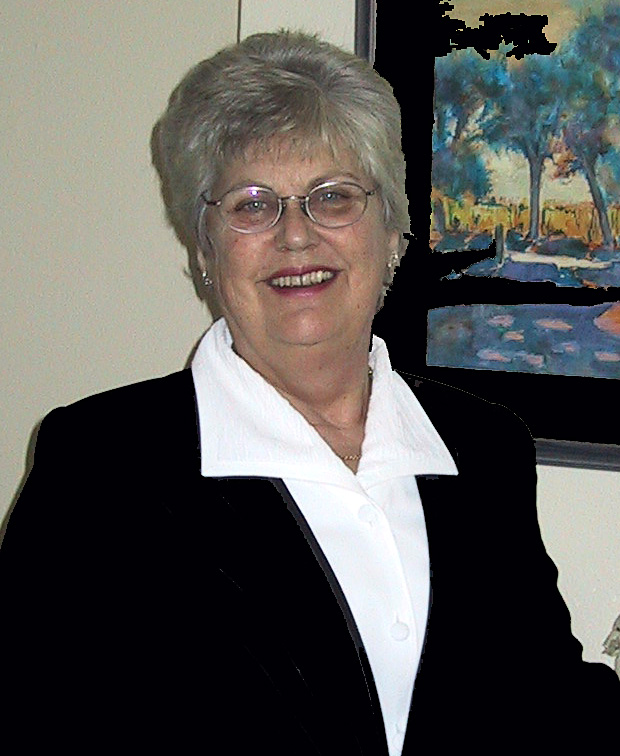Dr. Julia Wycherley MBE | ||
 |
||
|
It is with deep sadness that we inform friends of SARG that Julia Wycherley died with her family by her side on 9th September 2009, as a result of complications associated with the myasthenia gravis against which she had battled for many years. Julia was the bright spark and energy behind SARG since it was founded by her in 1987 and she was the major force behind the group. Her achievements were immense and broad-ranging, despite extreme illness in latter years. She helped to create the County ARG-network, Pond Conservation charity, set-up over 30 toad-crossings in Surrey, dug numerous ponds (with help of Ralph, SARG and excavator drivers), conducted numerous surveys and was a mentor to so many. Julia achieved a doctorate (D.Phil.) from the University of Sussex for distinguishing regional accents in green frogs, which lead to an instrumental role in the re-introduction of the Pool Frog in the UK; and last year received an MBE from the Queen and an honorary award from ARG(UK) in recognition of her work. Julia will be missed by all - Rest In Peace. The SARG Committee |
||
"Earlier this month [September 2009] the herpetological community lost Julia Wycherley, who died in hospital. Her family was with her. Julia was a founder member of Surrey ARG, which with Sussex Amphibian and Reptile Group, lays claim to be the first of the ARGs, established over twenty years ago. Surrey ARG continues to be a model group, always pushing ahead with herp recording, making the best use of amphibian and reptile records. Julia was co-author of Amphibians and Reptiles of Surrey, published by Surrey Wildlife Trust in 2001. Julia’s particular interest in water frogs, led into her to research of green frog calls, for which she achieved a doctorate from the University of Sussex. Her research into bioacoustics contributed towards establishing native status of pool frog and Julia has been one of the key movers behind the pool frog reintroduction programme. Julia has been a vigorous supporter of herps conservation. Her work was acknowledged with an MBE, and by an award from ARG UK, received at the HWM in 2008. This was the first time that ARG UK recognised the efforts of an individual in this way. Though perhaps not as widely recognised as an MBE, Julia said that it meant a lot to her as it was "from her peers". Over the years Julia has been a friend and mentor to many other herp workers. She will remain with us through them." John Baker - ARG UK |
||
Julia Wycherley, an outstanding member of Britain's herpetological community, died in September 2009. For many people, Julia was a welcome and familiar face at herpetological group meetings where she regularly contributed stimulating talks, always focused on some aspect of her passion for amphibian and reptile conservation. My first recollection of her was a memorable account of great crested newt distribution in Surrey, which she gave at one of the first annual herpetofauna recorders' meetings in the early 1980s. By that time Julia was already leading the way in what rapidly became one of the most consistently successful local amphibian and reptile groups (ARGs) in the country. Indeed, she chaired the Surrey ARG for more than three decades, standing down only when deteriorating health made it necessary to do so. It would be impossible to exaggerate the efforts Julia made in identifying, and helping to conserve, good sites for amphibians and reptiles in her home county. I sometimes thought that there couldn't be any pond in Surrey that Julia didn't know about, and as often as not she could tell you what species were in it, who owned it, and what needed to be done to improve it. Julia was much more than a good naturalist and conservationist. She had strong scientific interests, and in the 1990s became heavily involved in a project to determine whether pool frogs were native to Britain (contrary to the longstanding view that they were all introduced recently by man). Her take on the problem was to investigate the calls of breeding males, and try to find out if they had "local accents" that might give clues about their history. I was delighted when Julia joined me to work for a PhD so she could explore this original idea, and was deeply impressed by her ability to develop new skills (especially in statistics!) and ultimately to provide impressive evidence supporting the pool frog's status as a longstanding native species. She also had no problem impressing her examiners, and was awarded the degree in 2003. During this period and afterwards, Julia, together with her husband Ralph, made trips to Sweden to compare pool frogs there with those previously in Britain, where the last native population died out in the 1990s. Ultimately frogs from Sweden were used to repopulate a site in England, once again with substantial help from Julia despite increasingly fragile health - it would take more than that to diminish her enthusiasm. Few people can lay claim to assisting the reintroduction of an extinct species back into Britain, but Julia was one of them. Last but by no means least, Julia was a delight to be with and (often together with Ralph) provided all manner of personal support to anyone in need of a little bucking up. All who knew her were delighted when, in 2008, she was given a well-deserved reward - national recognition by way of an MBE for her work in herpetology and conservation. Her loss was profoundly sad both for herpetology and for all her many friends and colleagues. Prof. Trevor Beebee - January 2010 |
||